Columnists Weigh the Science, the Cultural Issues
Oregonian Owns Up to Past Racism: Apology From ‘Whitest Major City in America’
Debate Over Whether U.K. Having ‘Obama Moment’
Haitian Journalist Survives Assassination Attempt
Why We Should Pay More Attention to Foreign News
Politically Speaking, Latinos Still Not a Monolith
Short Takes: Survivors of shootings by police; “fearful time for American media”; “Black in the Newsroom” film; investigation into L.A.’s leaked racist City Hall recording; Donald Trump’s threat to journalists; Kathy Baird of Rosebud Sioux Tribe; new journalism collaborative for underserved Florida; James Fallows and Dori J. Maynard; David Chavern; Michelle Li; Sonal Shah; Alturo Rhymes; CNN’s “Guns in America” beat; Neema Roshania Patel.
Homepage photo: Michelle Obama, from her Instagram page
Trailer for “Hair Tales,” in which “The stories shared in the series offer an honest and layered look into the complex culture of Black hair and ultimately Black women’s identity, creativity and contributions to society.” (Credit: Hulu/YouTube)
Columnists Weigh the Science, the Cultural Issues
A new study linking hair-straightening products and uterine cancer has landed as Black women, who scored a partial victory this year with the House passage of the Crown Act, short for “Creating a Respectful and Open World for Natural Hair,” are renewing the discussion over how to wear their hair.
” ‘Michelle’s Hair Hasn’t Been Straight Since She Left the White House’: Fans Gush Over Michelle Obama’s New Hairstyle In Photo with Barack Obama,” reads a headline from Atlanta Black Star. (photo below, credit Instagram)
Over the weekend, OWN and Hulu began “Hair Tales,” a six-part series executive produced by Tracee Ellis Ross, Oprah Winfrey and Michaela Angela Davis.
And Essence asked in bold type, “Are Relaxers And Sew-Ins In Vogue Again?“
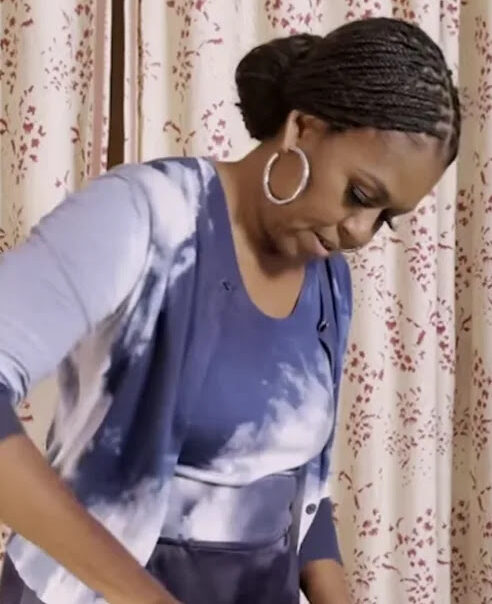 As Roni Caryn Rabin reported Oct. 17 for the New York Times, “Women who use chemical hair straighteners frequently could have a higher risk of developing uterine cancer than women who have never used the products, according to new findings from a national study that has followed nearly 34,000 U.S. women for more than a decade.
As Roni Caryn Rabin reported Oct. 17 for the New York Times, “Women who use chemical hair straighteners frequently could have a higher risk of developing uterine cancer than women who have never used the products, according to new findings from a national study that has followed nearly 34,000 U.S. women for more than a decade.
“The study did not establish a cause-and-effect relationship between hair straighteners and cancer of the uterus, a form of reproductive cancer that has been increasing in incidence among women in recent years, especially among Black women.”
Still, Rabin quoted Alexandra White, head of the environment and cancer epidemiology group of the National Institute of Environmental Health Sciences (N.I.E.H.S.) and the study’s lead author: “We don’t want to panic people. One could make a decision to reduce this chemical exposure, but we also want to acknowledge that there is a lot of pressure on women, especially Black women, to have straight hair. It’s not an easy decision to not do this.”
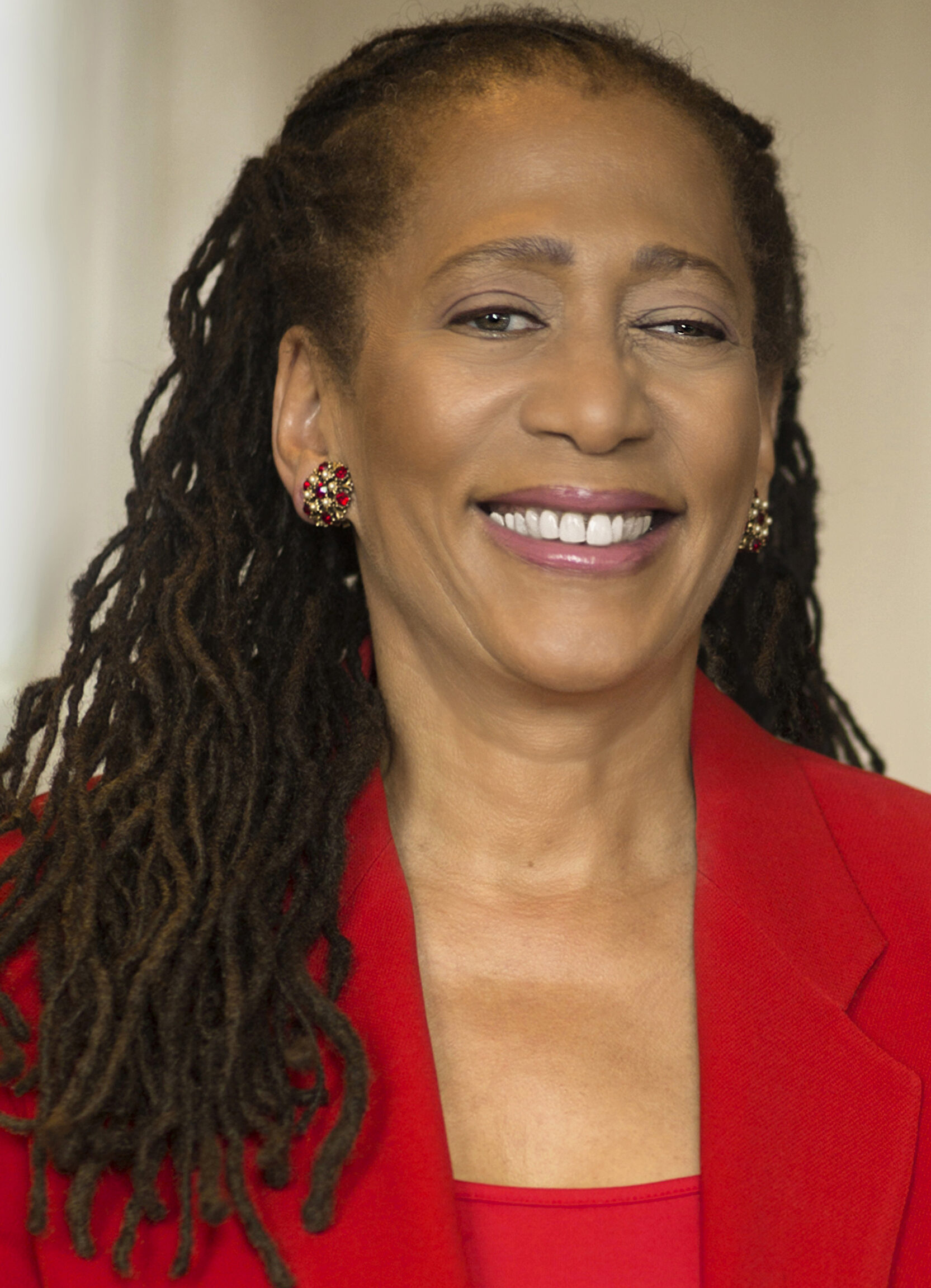 Laura Washington (pictured), a columnist for the Chicago Tribune who wears her hair naturally, needed no persuading. “This new study is a long-awaited wake-up call. Hair straightening chemicals are a self-imposed plague we cannot afford,” she wrote Monday. “Black women already face so many medical perils. In a 2021 analysis of COVID-19 deaths in Georgia and Michigan, researchers found that Black women died at more than three times the rates of white men and Asian men. The only other group to die at a higher rate from the disease was Black men, showed the study from Harvard University’s T.H. Chan School of Public Health.
Laura Washington (pictured), a columnist for the Chicago Tribune who wears her hair naturally, needed no persuading. “This new study is a long-awaited wake-up call. Hair straightening chemicals are a self-imposed plague we cannot afford,” she wrote Monday. “Black women already face so many medical perils. In a 2021 analysis of COVID-19 deaths in Georgia and Michigan, researchers found that Black women died at more than three times the rates of white men and Asian men. The only other group to die at a higher rate from the disease was Black men, showed the study from Harvard University’s T.H. Chan School of Public Health.
“Compared to white women, we suffer from higher rates of some cancers, heart disease, high blood pressure, maternal morbidities, and obesity, shows data from a 2021 report by the Journal of Women’s Health. Yet we submit to dangerous chemical hair treatments so that we can look more like white women.”
Essence answered its question, “Are Relaxers And Sew-Ins In Vogue Again?” by citing the COVID pandemic. “With government-imposed shutdowns of non-essential businesses, including beauty salons, many were left to their own devices.” Brooklyn White quoted Florida-based stylist Daniella Emilien, who formerly worked with celebrities, saying she “believes it was a struggle and thinks women don’t fully understand how their hair works.
“ ‘A lot of women don’t know how to maintain their hair,’ she said bluntly. ‘They don’t know how to shampoo, condition, or treat their hair.’ She also considered the women who didn’t have the luxury of working from home and had no other option than to do their best.’ “
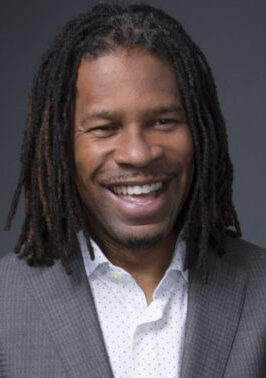 In April, when Ketani Brown Jackson was successfully nominated for a Supreme Court seat, Los Angeles Times columnist LZ Granderson (pictured), who like Jackson, wears locs, pointed out the cultural and political implications of Jackson’s hairstyle choice.
In April, when Ketani Brown Jackson was successfully nominated for a Supreme Court seat, Los Angeles Times columnist LZ Granderson (pictured), who like Jackson, wears locs, pointed out the cultural and political implications of Jackson’s hairstyle choice.
“And here in 2022 sat Jackson — relaxed shoulders instead of relaxed hair — skillfully answering non sequitur questions about racist babies while ignoring the blaring dog whistle in the room.”
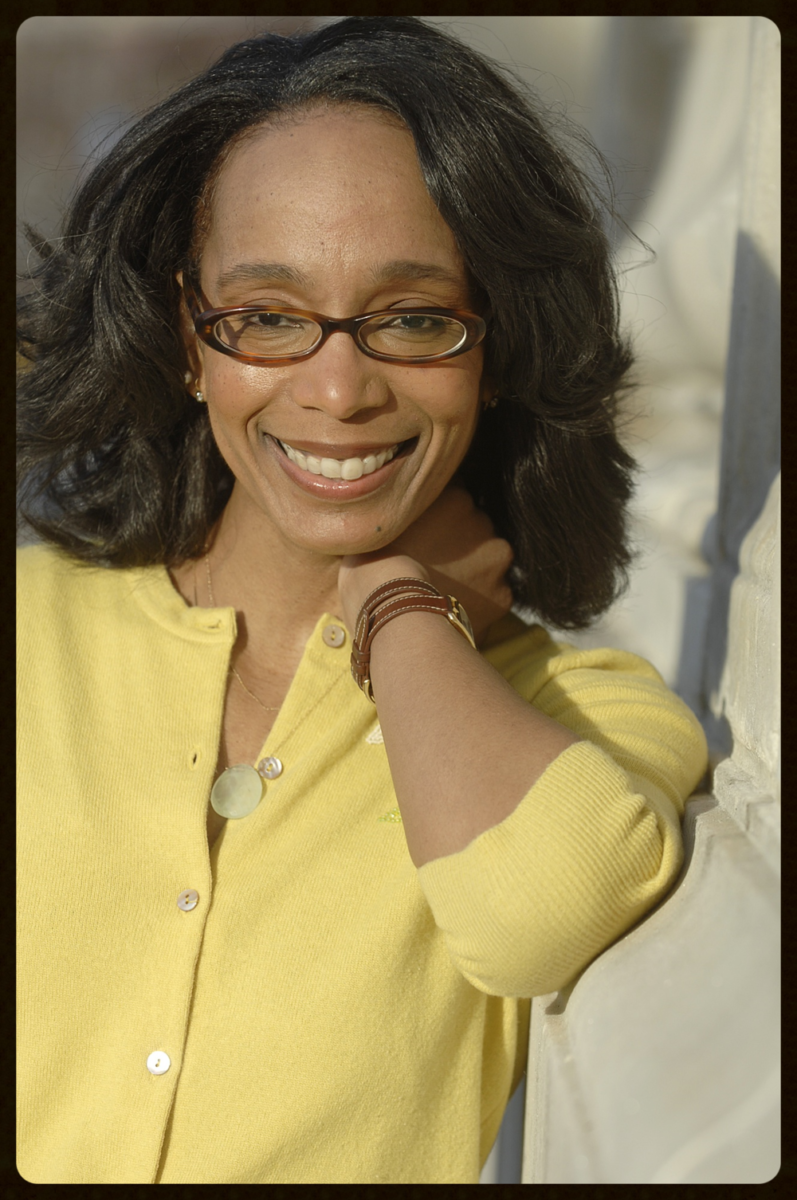 It’s also a subject that Robin Givhan (pictured), the Pulitzer Prize-winning senior critic-at-large for the Washington Post, writing about politics, race and the arts, couldn’t pass up.
It’s also a subject that Robin Givhan (pictured), the Pulitzer Prize-winning senior critic-at-large for the Washington Post, writing about politics, race and the arts, couldn’t pass up.
“The NIH study is a warning,” Givhan wrote Oct. 18. “Not just about the risks of relaxers and dye jobs, but the dangers and costs of preaching a doctrine that says a particular kind of person is more beautiful, more capable, more valued simply because they look a particular way. That standard is rooted in Whiteness, but the truth is that the standard has become so airbrushed and filtered that no one can actually reach it even though so many people can’t stop chasing it. . . .”
- Char Adams, NBC News: Chemical hair straighteners linked to higher risk of uterine cancer for Black women, study shows (Oct. 17)
- Karen Attiah, Washington Post: Black women, ’90s perms, and dangerous beauty standards (Oct. 28)
- Lindsey Bever, Washington Post: What to know about hair-straightening chemicals and uterine cancer risk (Oct. 18)
- Che-Jung Chang, PhD, Katie M O’Brien, PhD, Alexander P Keil, PhD, Symielle A Gaston, PhD, Chandra L Jackson, PhD, Dale P Sandler, PhD, Alexandra J White, PhD, MSPH, Journal of the National Cancer Institute: Use of Straighteners and Other Hair Products and Incident Uterine Cancer (Oct. 17)
- Journal-isms: Straight Talk on TV Hair (Aug. 8, 2021)
- Journal-isms: Why So Many Black Women Have Hair Stories (July 23, 2021)
- Journal-isms: The ‘Secret’ Lives of Barbers, Beauticians (Aug. 30, 2020)
- Journal-isms: ‘Good Hair’ on the TV Set (Oct. 8, 2009)
- Roni Caryn Rabin, New York Times: Uterine Cancer Is on the Rise, Especially Among Black Women (June 17)
Oregonian Owns Up to Past Racism
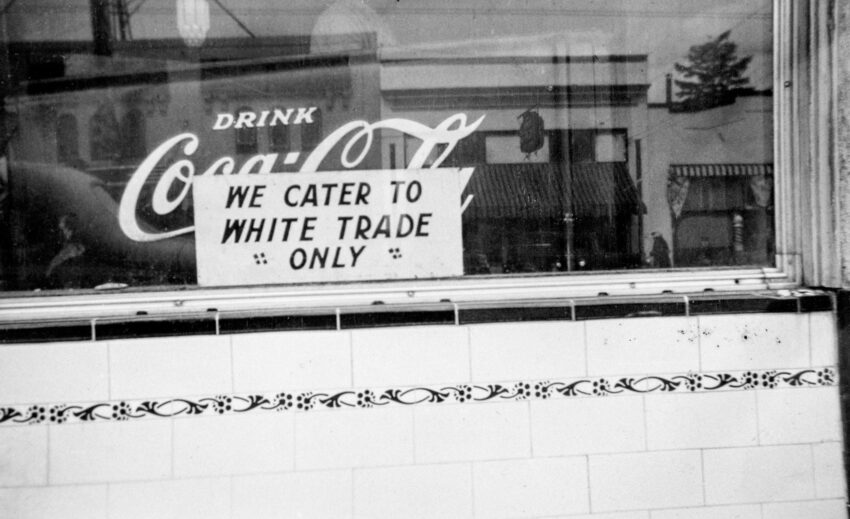
Apology From ‘Whitest Major City in America’
“As editor of The Oregonian, the current leader of the newsroom, I unreservedly apologize to our readers and our community for the racism in this newspaper and the legacy it leaves,” Therese Bottomly (pictured, below, by Cathy Cheney/Portland Business Journal) wrote Monday.
Her publication thus joined the Los Angeles Times, the Kansas City Star, the Baltimore Sun (scroll down), Seattle Times (scroll down) and other news organizations who in the last few years have owned up to their racist pasts.
“For decades following its founding as a daily in 1861, The Oregonian promoted racist and xenophobic views,” Bottomly continued. “Editorials and news articles were decidedly on the wrong side of morality. The institution stirred hatred, prejudice and unwarranted fear.
“After George Floyd was murdered, thousands of people marched in the streets to demand social justice. Some institutions, including a handful of newspapers, responded to the moment with sustained examinations of their histories in pursuit of strengthening the principles of diversity, equity and inclusion.
“The Oregonian/OregonLive looked inward as well.
“Oregon was founded as an exclusionary state openly hostile to people of color, and Portland today remains the whitest major city in America. How did the newspaper cover issues of race as the state’s preeminent source of news? How did journalists and editorial writers of the day treat non-white people and communities? How did choices of what was published — and what was not — shape the community we live in today?
 “And what role might The Oregonian have played in failing to seek redress for discrimination and prejudicial policies that laid the foundation for systems in place today?
“And what role might The Oregonian have played in failing to seek redress for discrimination and prejudicial policies that laid the foundation for systems in place today?
“Or, worse, what role did the newspaper play in sustaining and promoting the dominant white culture in laws, institutions, and policies?
“Investigative reporter Rob Davis began his deep examination of the newspaper’s history more than a year ago. He and his editor, Brad Schmidt, spent months reviewing the archives, assessing the evidence and talking to historians and Oregonians whose communities were affected by the coverage.
“I thought we would find the newspaper had missed stories, ignored major cultural movements, been behind the times. And, yes, we found sins of omission, to be sure.
“But the gravest mistakes were sins of commission. . . .”
A separate piece by Davis went on to answer such questions as “Why didn’t any journalists of color participate in the reporting and editing of this project?” and “What has The Oregonian/OregonLive done in the past to address issues of equity and inclusion? What about reparations?”
Another reported how the newspaper’s editorials “championed segregation and nonunanimous juries,” editorializing against “ ‘mixed-blooded’ jurors and the risk of juries filled with immigrants who lacked ‘the traditions of the English-speaking peoples. ‘ ”
- Andy Giegerich, Portland Business Journal: Women of Influence 2022: Therese Bottomly of The Oregonian (March 4)
- Kaylee Tornay, Investigate West: At least one juror refused to call them guilty. But they’re still in prison. In Oregon and Louisiana, hundreds remain behind bars two years after U.S. Supreme Court outlawed split-jury verdicts
“The UK media on Tuesday welcomed Indian-origin Rishi Sunak with both bouquets and brickbats as he scripted history by becoming the first person of colour to become the Prime Minister of Britain, which in the past had colonised most of the world, with some news outlets acknowledging his leadership as the ‘new dawn’ for the country, while others questioning the validity of his victory,” the Press Trust of India wrote. (Credit: CNBC/YouTube)
Debate Over Whether U.K. Is Having ‘Obama Moment’
Indian newspapers and TV channels were already clamoring for the Rishi Sunak “era” on Sunday as Sunak was poised to become the first person of color to serve as Britain’s prime minister, Mithil Aggarwal reported Tuesday for NBC News.
But whether Sunak’s ascension as prime minister represents an “Obama moment” for Britain was open to debate. Barack Obama became president in 2009 after a national election, while Sunak was the choice only of the Conservative Party –“about 180,000 Conservative members who tend to be affluent, older white men,” as Jill Lawless has reported for the Associated Press.
In addition, Sunak is married to the daughter of one of India’s wealthiest men. “Sunak’s Ascent Is a Breakthrough for Diversity, With Privilege Attached,” The New York Times headlined.
“I remember when Barack Obama was first elected president in 2008,” wrote Pravina Rudra, comment editor of Britain’s New Statesman. “Aged 14, I’d barely listened to the news before, but that weekend I sat at our kitchen table poring over a Sunday newspaper my parents had bought. The fact Obama had remotely comparable skin colouring (albeit due to Kenyan ancestry rather than my own Sri Lankan heritage) made me feel part of a world I’d until then assumed unreachable. His optimistic slogan, ‘yes we can’, and willingness to reach across the political divide lifted my heart; I wonder if I’d ever have become interested in politics otherwise, or be in the job I’m in now.
“To hear people describe Rishi Sunak becoming Prime Minister as ‘Britain’s Obama moment’ feels, therefore, a little odd. Let me be clear: I feel warmed to know a Hindu Asian man can ascend to the highest office in the land, not least on the day my family WhatsApp groups were pinging with Diwali Gifs,” a reference to the Hindu festival of lights, Diwali, that began this week. “I squirm at suggestions by supposed ‘liberals’ that he (along with [fellow politicians] Suella Braverman and Priti Patel) is somehow ‘Asian, but not really’, because of his conservatism.
“But Sunak is no transformative politician. He, like his predecessor, is a proud Thatcherite . . . .”
In July the AP’s Lawless noted the changing complexion of Tory leadership. ” ‘The Conservative Party is very diverse at the very, very top,’ said Sunder Katwala, director of the equality think-tank British Future. ‘It’s a massive, rapid change, and it’s a level of ethnic diversity that has never been seen in any leadership field for any political party in any Western democracy. ‘ “
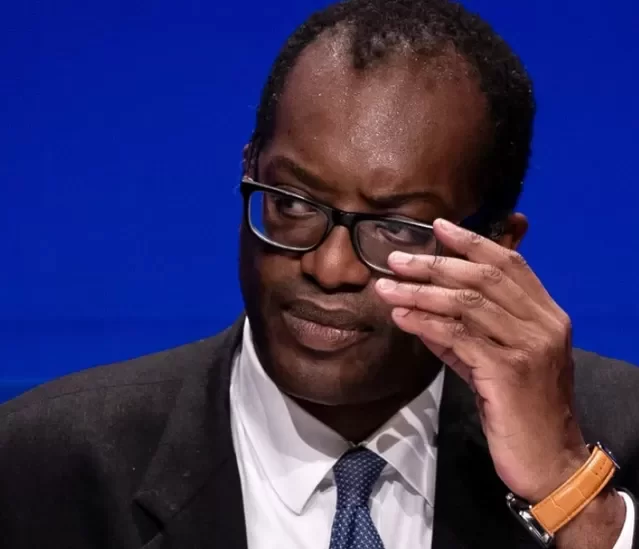 However, that progress didn’t come without skeptics. Kwasi Kwarteng (pictured), the government’s first black Chancellor of the Exchequer, was labelled “superficially black” by one of his political peers, and Leah Mahon wrote Oct. 3 in the Voice, a Black British newspaper, “it was no mystery to many of us in the black community what those words actually meant.”
However, that progress didn’t come without skeptics. Kwasi Kwarteng (pictured), the government’s first black Chancellor of the Exchequer, was labelled “superficially black” by one of his political peers, and Leah Mahon wrote Oct. 3 in the Voice, a Black British newspaper, “it was no mystery to many of us in the black community what those words actually meant.”
What Labour MP Rupa Huq “dared to say on a public platform, touches on an age-old debate about what it means to be black within a race that has been stereotyped as monolithic for centuries,” Mahon continued.
“Kwarteng’s right to be a Tory is his alone because yes, there are Black Conservatives out there. Some of us just have to look as far as to our parents and grandparents to see that there are views in our community that clash with more widely accepted notions of what constitute Black identity.
“Whether you call these views ‘white-washing,’ or the residue of colonialism from generations gone by is a conversation for another day. . . .”
- Robin Givhan, Washington Post: Class and race and the new British prime minister
- Danica Kirka, Associated Press: UK gets first PM of color, but equality fight not over
- Leah Mahon, The Voice, Britain: Rishi Sunak – first prime minister of colour
- Press Trust of India: British Media On Rishi Sunak’s Appointment As UK PM
- “Dogs and Indians Not Allowed” (Twitter)
“Just 600 miles off of Florida’s coast, millions of Haitians face humanitarian, security, and political crises,” the “PBS NewsHour” told viewers on Tuesday. “More than one million people there suffer from acute food insecurity, cholera is spreading, violence has reached previously safe areas and the government appears powerless to provide solutions. Nick Schifrin reports.”
Haitian Journalist Survives Assassination Attempt
“One of Haiti’s top investigative journalists was the victim of an apparent assassination attempt Tuesday when his vehicle was riddled with bullets during an armed attack while on his way to work,” Jacqueline Charles reported Tuesday for the Miami Herald.
“Roberson Alphonse, who works for Le Nouvelliste, the country’s only daily and hosts its popular morning program Panel Magik on Port-au-Prince-based radio station Magik 9, was in stable condition after being shot in the arms by an unknown gunman, said Frantz Duval, the chief editor for the newspaper and its leading editorial writer.
“ ‘I saw him, I spoke to him, he is in shock but not doing too bad,’ Duval said.
“The attack happened the same day authorities in the southern city of Les Cayes found the body of missing journalist Garry Tess. Tess used to host a political talk show in the city, and had been missing for several days.
“Both incidents come just weeks after Haiti, with support from the U.N.-Security Council, requested the immediate deployment of a special armed force to help the country’s police battle a powerful gang federation that has been blocking the main fuel terminal, Varreux. The blockade has stopped the flow of fuel, food and drinking water, amid a deadly resurgence of cholera.
“The head of the gang federation, Jimmy Cherizier, who is known as Barbecue, has said he will unblock the fuel when interim Prime Minister Ariel Henry resigns. Cherizier last week became the first person sanctioned by the United Nations Security Council in five years after it passed a resolution to sanction Haitian gangs and those who arm and finance them.
“Alphonse is one of Haiti’s more respected and well-known journalists, who has remained in the country despite the threat of the profession. He was featured in the Miami Herald’s Emmy-winning post-earthquake documentary Nou Bouke [We’re Tired]: Haiti’s Past, Present and Future (video). . . .
“As the former president of the Association of Haitian Media, there are two things I always say,” Duval said in the story. “Haiti is a slippery terrain for journalists and Haiti is always a complicated place for journalists. The insecurity is such that at any time, any place, anyone can become a victim. When you combine these two realities, journalists are doubly at risk.”
At least 17 journalists and media workers have been killed in Haiti between 1992 and 2022, according to the Committee to Protect Journalists.
- Edwidge Danticat, New Yorker: The Fight for Haiti’s Future
“You know what is happening to food costs in the U.S. They are worse in Europe” (Credit: Deutsche Welle News/YouTube)
Why We Should Pay More Attention to Foreign News
“When Americans are worried about their own economy, we tend not to pay much attention to the rest of the world’s problems. And then we seem surprised when their problems also become our problems,” Al Tompkins (pictured below, by Sharon Farmer/sfphotoworks) wrote Saturday for the Poynter Institute. . . .
Tompkins also wrote, “You know what is happening to food costs in the U.S. They are worse in Europe, a direct reflection of Russia’s invasion of Ukraine. Bread prices rose 20% in the last year and will increase even more as we enter winter. . . .
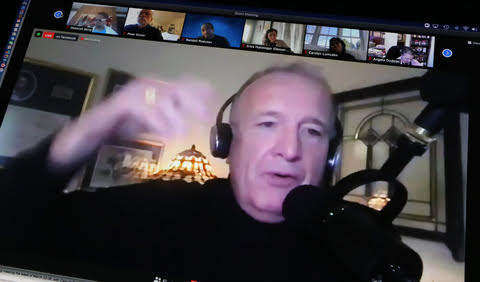 “The most recent Pew polling on this issue found 45 percent of registered U.S. voters ranking foreign policy as critical compared to the 77 percent who identified the economy as critical. And yet, in so many ways, the two are connected. . . .
“The most recent Pew polling on this issue found 45 percent of registered U.S. voters ranking foreign policy as critical compared to the 77 percent who identified the economy as critical. And yet, in so many ways, the two are connected. . . .
“I am frustrated that journalists are allowing the candidates to set the agenda of what we are covering. The journalists’ job is to press candidates to state positions on important issues that they will likely vote on in the coming term. Campaign coverage is largely about documenting what candidates promise to do so we can hold them accountable when they are in office.
“Here are some other questions journalists could ask a midterm candidate:
- “What would you support to lessen, prevent and/or reverse the effects of climate change? . . .
- “42% of U.S. adults say they are very or somewhat likely to seriously consider purchasing an electric vehicle. What role should the U.S. government have in encouraging the move away from gasoline powered vehicles?
- “A majority (63%) says the federal government is doing too little to protect the water quality of rivers, lakes and streams. What should we be doing to protect waterways that we are not doing?
- “By a 53% to 45% margin, Pew Research finds Americans are more likely to view stricter environmental laws as worth the cost than to say such laws cost too many jobs and hurt the economy. How will you weigh these competing pressures?
- “Lower-income adults, as well as Black and Hispanic adults, are especially likely to report environmental problems in their communities. What will you support to address the environmental issues in those communities? . . . .”
Politically Speaking, Latinos Still Not a Monolith
A Florida poll released this week confirms the view of many that the news media should not view Latinos as a monolith, especially when political temperatures are taken.
 “Gov. Ron DeSantis has an advantage among Hispanic voters over his Democratic opponent, Charlie Crist, according to a new poll for Telemundo/LX News. A majority also said they supported the Republican governor’s handling of the COVID-19 pandemic, the Hurricane Ian response, housing, insurance issues — and his recent relocation of migrants from Texas to Martha’s Vineyard,” Bianca Padro Ocasio reported Monday for the Miami Herald.
“Gov. Ron DeSantis has an advantage among Hispanic voters over his Democratic opponent, Charlie Crist, according to a new poll for Telemundo/LX News. A majority also said they supported the Republican governor’s handling of the COVID-19 pandemic, the Hurricane Ian response, housing, insurance issues — and his recent relocation of migrants from Texas to Martha’s Vineyard,” Bianca Padro Ocasio reported Monday for the Miami Herald.
“Of the 625 likely Hispanic voters polled statewide, 51% said they would vote for DeSantis if the election were held on that day, while 44% said they would back Crist. Among independents, DeSantis was favored slightly higher than the overall average, with 56% of those polled saying they would vote for DeSantis. Most Democrats, 92%, and most Republicans, 95%, said they would back their party’s candidate.
“However, the support for each candidate diverged strikingly when split up by country of origin and region of the state. While Cubans consistently agreed with DeSantis on all issues, most Puerto Ricans backed Crist and disagreed with DeSantis on issues like immigration. Other Hispanics — which included Colombians, Venezuelans, Mexican Americans and Central Americans — disapproved of DeSantis’ flying of migrants to Martha’s Vineyard and were evenly split on his overall performance as governor. . . .”
- Dana Milbank, Washington Post: No, Latinos aren’t abandoning the Democratic Party
- Carmen Sesin, NBC News: Most Cuban Americans disapprove of Biden on the issues, but new arrivals like him, poll finds
Short Takes
- For every five people shot and killed by police in 156 police departments, four others were shot and survived, Brian Howey, Wesley Lowery and Steven Rich reported for the Washington Post on Friday. “This is the unseen reality of police use of deadly force in the United States: a hidden population whose circumstances largely echo those in fatal shootings but who survive to grapple with a lifetime of debilitating wounds, emotional trauma and legal fallout. Because The Post examined incidents only in the deadliest departments, the tally of those wounded by police is undoubtedly far higher. . . .”
- “It’s a brutal, fearful time for American media — with companies scrambling to cut costs and secure cash in a scenario reminiscent of the early pandemic,” Sara Fischer reported Tuesday for Axios. “Why it matters: The new economic reality means layoffs, hiring freezes, and other cost-cutting measures.” Alex Weprin reported Wednesday for the Hollywood Reporter, “CNN will see layoffs and other cuts in the coming weeks, as the global news division responds to a worsening economic climate and as Warner Bros. Discovery continues its effort to bring together the WarnerMedia and Discovery businesses. . . .”
- “The Media 2070 film Black in the Newsroom was awarded Best Documentary (Short Film) at the Detroit Black Film Festival,” the media activist group Free Press announced Sept. 28. “Black in the Newsroom is a 15-minute documentary that follows the journey of talented young journalist Elizabeth Montgomery, who finds herself unfairly targeted and underpaid while fighting to tell Black stories at The Arizona Republic. The award-winning film (video) weaves together a picture of anti-Blackness in the media — brought to life through Montgomery’s courageous sharing of her experiences — and its pervasive harm to society. . . .” Media 2070 is a project of the media activist organization Free Press.
- “Los Angeles police Chief Michel Moore announced Tuesday that his department has launched an investigation into the source of the leaked racist recordings that thrust City Hall into a harsh national spotlight,” Libor Jany, Richard Winton and Connor Sheets reported Tuesday for the Los Angeles Times. They also wrote that Jessica Levinson, a Loyola Law School professor and former president of the City Ethics Commission, said, “the LAPD won’t be able to take action against the individual who posted the recordings on Reddit as long as they are not the person responsible for making the surreptitious recordings in the first place. She said that, while the LAPD may be able to identify the Reddit poster, it is likely that person could seek to invoke California’s shield law to protect the source of the recordings. . . . “
- “Former President Donald Trump threatened journalists with prison rape Saturday, suggesting the federal government use violence as a way to combat leaks to the media from journalists,” Loree Seitz reported Sunday for The Wrap. ” ‘You take the writer and/or the publisher of the paper … and you say “Who is the leaker?
National security,” ‘ Trump explained to audiences during a rally in Robstown, Texas. ‘And they say “We’re not gonna tell you.” They say “That’s OK, you’re going to jail.” And when this person realizes he’s going to be the bride of another prisoner very shortly, he will say “I’d very much like to tell you exactly who that leaker is!” ‘ ”
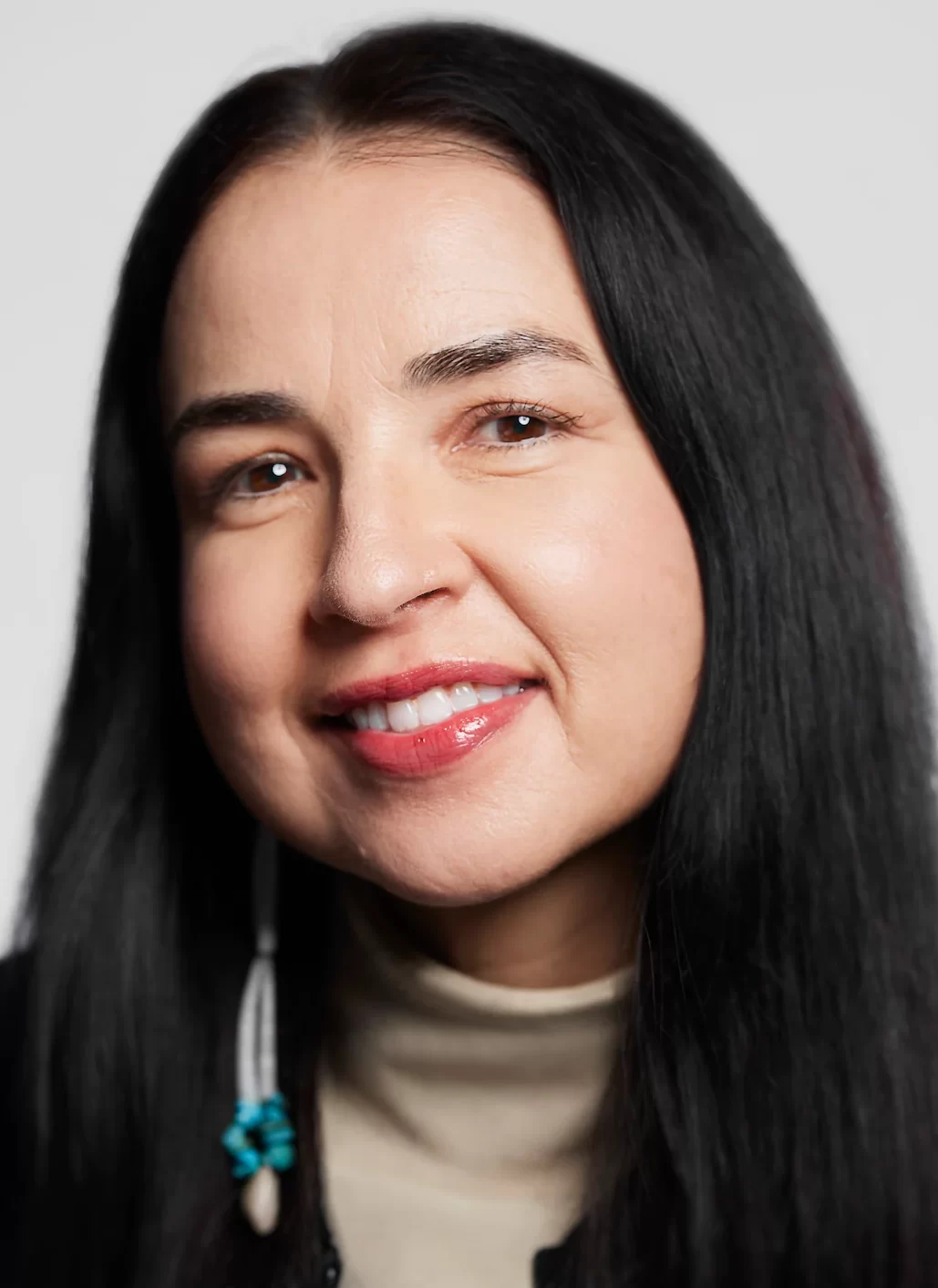 Kathy Baird (pictured) has been named The Washington Post’s chief communications officer, overseeing corporate communications, public relations, live events, and brand marketing,” the news organization announced Tuesday. “Baird joins The Post from Nike where she served as the Senior Director of Global Communications. . . . Baird is Sicangu Lakota and Oneida, and an enrolled member of the Rosebud Sioux Tribe. She is a recipient of the ColorComm Circle Award, recognizing women of color who are changing the face of the communications industry. She serves on the Advisory Board of IllumiNative, a nonprofit working for accurate and authentic portrayal of Native people. She is also on the boards of the American Indian College Fund and Rare, a global environmental nonprofit. . . . “
Kathy Baird (pictured) has been named The Washington Post’s chief communications officer, overseeing corporate communications, public relations, live events, and brand marketing,” the news organization announced Tuesday. “Baird joins The Post from Nike where she served as the Senior Director of Global Communications. . . . Baird is Sicangu Lakota and Oneida, and an enrolled member of the Rosebud Sioux Tribe. She is a recipient of the ColorComm Circle Award, recognizing women of color who are changing the face of the communications industry. She serves on the Advisory Board of IllumiNative, a nonprofit working for accurate and authentic portrayal of Native people. She is also on the boards of the American Indian College Fund and Rare, a global environmental nonprofit. . . . “
- “A new journalism collaborative based at WUSF in Tampa, Fla., aims to expand coverage of three nearby counties by providing reporting to local public and commercial outlets and encouraging further content-sharing,” Abby Turner reported Tuesday for current.org. Matthew Sauer, collaboration and impact officer at the Sarasota-based Barancik Foundation, which contributed $600,000 to launch the collaborative, said he hopes the Community News Collaborative will focus on “communities such as Newtown, a majority-Black town north of Sarasota that gets little media attention. He also wants to see Spanish-speaking reporters hired to cover the growing Hispanic community in rural DeSoto County. The CNC will provide reports to Spanish-language radio stations owned by Solmart Media. . . . “
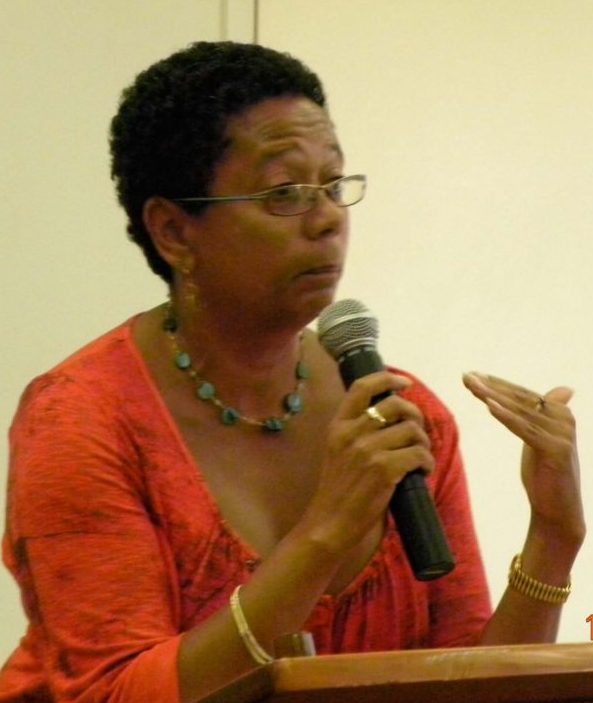 “‘There Are Only Five Media Stories’ But now I am ready to start on number six,” veteran journalist James Fallows wrote Sunday on his “Breaking the News” blog. Based on Margaret Sullivan’s new book, “Newsroom Confidential,” Fallows lists the five running stories that Sullivan jokingly listed: “There was the ‘Evils of Facebook’ column; the one about the tragedy of local newspapers’ decline at the hands of hedge-fund owners; the Fox News damage-to-society column; the ‘don’t magnify political lies’ column; and the one about the mainstream media’s intransigent flaws.” But Dori J. Maynard (pictured), the late president of the Maynard Institute for Journalism Education, thought there should be another running story: diversity and inclusion in the news business. She told Jackie Jones, now journalism dean at Morgan State University, why Journal-isms went online in 2002. “That’s why we started it, actually,” Maynard said in 2011. “I was so disturbed by Romenesko,” then the most popular online media-news column. “There was never any notice of people of color.” Have things changed so much?
“‘There Are Only Five Media Stories’ But now I am ready to start on number six,” veteran journalist James Fallows wrote Sunday on his “Breaking the News” blog. Based on Margaret Sullivan’s new book, “Newsroom Confidential,” Fallows lists the five running stories that Sullivan jokingly listed: “There was the ‘Evils of Facebook’ column; the one about the tragedy of local newspapers’ decline at the hands of hedge-fund owners; the Fox News damage-to-society column; the ‘don’t magnify political lies’ column; and the one about the mainstream media’s intransigent flaws.” But Dori J. Maynard (pictured), the late president of the Maynard Institute for Journalism Education, thought there should be another running story: diversity and inclusion in the news business. She told Jackie Jones, now journalism dean at Morgan State University, why Journal-isms went online in 2002. “That’s why we started it, actually,” Maynard said in 2011. “I was so disturbed by Romenesko,” then the most popular online media-news column. “There was never any notice of people of color.” Have things changed so much?
 “One of the fiercest advocates for local news in Washington, DC, is getting a new job, a move that might worry media outlets serving smaller communities across the country,” Oliver Darcy wrote for CNN’s “Reliable Sources” column. “David Chavern (pictured), who has served as CEO of the News Media Alliance, was announced on Tuesday as the next head of the Consumer Brands Association. In 2020, Chavern acknowledged to Journal-isms that his group, representing newspaper publishers, had not done enough to promote diversity. He went on to champion a partnership between the Dallas Morning News and Texas MetroNews, one of Dallas’ Black newspapers, as a model to be replicated. “A spokesperson for the News Media Alliance tells me a formal search to replace Chavern will get underway shortly,” Darcy wrote.
“One of the fiercest advocates for local news in Washington, DC, is getting a new job, a move that might worry media outlets serving smaller communities across the country,” Oliver Darcy wrote for CNN’s “Reliable Sources” column. “David Chavern (pictured), who has served as CEO of the News Media Alliance, was announced on Tuesday as the next head of the Consumer Brands Association. In 2020, Chavern acknowledged to Journal-isms that his group, representing newspaper publishers, had not done enough to promote diversity. He went on to champion a partnership between the Dallas Morning News and Texas MetroNews, one of Dallas’ Black newspapers, as a model to be replicated. “A spokesperson for the News Media Alliance tells me a formal search to replace Chavern will get underway shortly,” Darcy wrote.
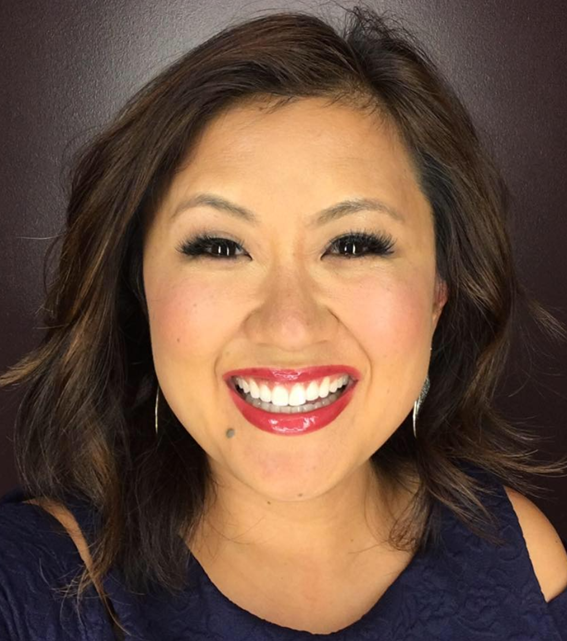 “Michelle Li (pictured), a St. Louis-based news anchor who went viral after a viewer left a racist voice message in response to Li saying she ate dumplings to celebrate New Year’s Eve, has written a new children’s book about Korean food,” Tony Lee reported Thursday for NBC News. “The book, ‘A Very Asian Guide to Korean Food,’ comes out Friday and aims to introduce commonly eaten Korean and Korean-fusion dishes to kids using colorful illustrations and brief trivia, such as their origins and how they’re prepared. . . .”
“Michelle Li (pictured), a St. Louis-based news anchor who went viral after a viewer left a racist voice message in response to Li saying she ate dumplings to celebrate New Year’s Eve, has written a new children’s book about Korean food,” Tony Lee reported Thursday for NBC News. “The book, ‘A Very Asian Guide to Korean Food,’ comes out Friday and aims to introduce commonly eaten Korean and Korean-fusion dishes to kids using colorful illustrations and brief trivia, such as their origins and how they’re prepared. . . .”
 Sonal Shah (pictured), a first-generation immigrant, international economist and a veteran of Google, Georgetown University, Goldman Sachs and the United Way, has been named CEO of the Texas Tribune. “Sonal will be a collaborative partner with Sewell Chan, the Tribune’s editor in chief, ensuring that the operational and financial needs of the newsroom are well-supported. Under her leadership, Sewell will continue to oversee the Tribune’s newsroom and its journalism, which was recently recognized with a National Edward R. Murrow Award,” Jim Schachter, chair of the Tribune’s board of directors, wrote Wednesday. Shah also founded and led the Houston-based Asian American Foundation.
Sonal Shah (pictured), a first-generation immigrant, international economist and a veteran of Google, Georgetown University, Goldman Sachs and the United Way, has been named CEO of the Texas Tribune. “Sonal will be a collaborative partner with Sewell Chan, the Tribune’s editor in chief, ensuring that the operational and financial needs of the newsroom are well-supported. Under her leadership, Sewell will continue to oversee the Tribune’s newsroom and its journalism, which was recently recognized with a National Edward R. Murrow Award,” Jim Schachter, chair of the Tribune’s board of directors, wrote Wednesday. Shah also founded and led the Houston-based Asian American Foundation.
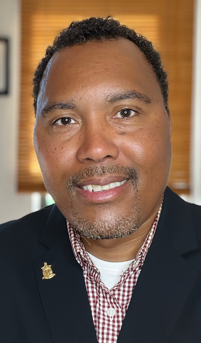 “CBS News announced Monday morning that CBS Evening News co-senior broadcast producer Alturo Rhymes (pictured) is being promoted to executive story editor of the CBS Evening News with Norah O’Donnell,” A.J. Katz reported Oct. 17 for TVNewser. “According to the newscast’s ep [executive producer] Adam Verdugo, going forward, Rhymes’ primary responsibilities will include ‘ensuring that the broadcast is well-positioned to respond to breaking news and planned future news coverage. He will also manage producer assignments and shepherd the development of our signature series like Eye on America, American Innovation, and Moneywatch, just to name a few. Additionally, Alturo will continue to take the lead collaborating closely with our editorial, digital, bureau, and investigative teams’. . . . “
“CBS News announced Monday morning that CBS Evening News co-senior broadcast producer Alturo Rhymes (pictured) is being promoted to executive story editor of the CBS Evening News with Norah O’Donnell,” A.J. Katz reported Oct. 17 for TVNewser. “According to the newscast’s ep [executive producer] Adam Verdugo, going forward, Rhymes’ primary responsibilities will include ‘ensuring that the broadcast is well-positioned to respond to breaking news and planned future news coverage. He will also manage producer assignments and shepherd the development of our signature series like Eye on America, American Innovation, and Moneywatch, just to name a few. Additionally, Alturo will continue to take the lead collaborating closely with our editorial, digital, bureau, and investigative teams’. . . . “
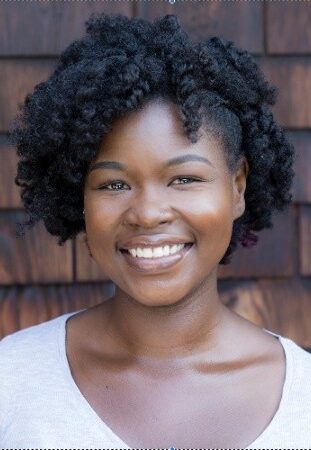 CNN is launching “Guns in America,” “a new beat dedicated to tracking and unpacking all aspects of the complex and divisive issues surrounding guns and gun violence in the country. The unit will be led by CNN guns and security correspondent Josh Campbell and feature reporting and analysis from Reload founder Stephen Gutowski, The Trace’s Jennifer Mascia and Abené Clayton (pictured), reporter on the The Guardian’s ‘Guns and Lies in America’ project. . .”
CNN is launching “Guns in America,” “a new beat dedicated to tracking and unpacking all aspects of the complex and divisive issues surrounding guns and gun violence in the country. The unit will be led by CNN guns and security correspondent Josh Campbell and feature reporting and analysis from Reload founder Stephen Gutowski, The Trace’s Jennifer Mascia and Abené Clayton (pictured), reporter on the The Guardian’s ‘Guns and Lies in America’ project. . .”
 “Neema Roshania Patel (pictured), a founding editor of The Washington Post’s news site for millennial women, The Lily, and most recently an editor with the Next Generation audience development team working to cultivate a younger and more diverse readership, died Oct. 24 at a hospital in Washington,” Adam Bernstein reported Tuesday for the Post. “She was 35. The cause was gastric cancer, said her husband, Akshar Patel. After working for print, online and broadcast outlets, Ms. Roshania Patel joined The Post in 2016 as a digital editor before helping launch The Lily the next year. As deputy editor, she helped build The Lily into a website focused on original and curated material for and about women and helped grow the brand in newsletters and social media platforms including Instagram and Twitter. . . .”
“Neema Roshania Patel (pictured), a founding editor of The Washington Post’s news site for millennial women, The Lily, and most recently an editor with the Next Generation audience development team working to cultivate a younger and more diverse readership, died Oct. 24 at a hospital in Washington,” Adam Bernstein reported Tuesday for the Post. “She was 35. The cause was gastric cancer, said her husband, Akshar Patel. After working for print, online and broadcast outlets, Ms. Roshania Patel joined The Post in 2016 as a digital editor before helping launch The Lily the next year. As deputy editor, she helped build The Lily into a website focused on original and curated material for and about women and helped grow the brand in newsletters and social media platforms including Instagram and Twitter. . . .”
To subscribe at no cost, please send an email to journal-isms+subscribe@groups.io and say who you are.
Facebook users: “Like” “Richard Prince’s Journal-isms” on Facebook.
Follow Richard Prince on Twitter @princeeditor
Richard Prince’s Journal-isms originates from Washington. It began in print before most of us knew what the internet was, and it would like to be referred to as a “column.” Any views expressed in the column are those of the person or organization quoted and not those of any other entity. Send tips, comments and concerns to Richard Prince at journal-isms+owner@
View previous columns (after Feb. 13, 2016).
View previous columns (before Feb. 13, 2016)
- Diversity’s Greatest Hits, 2018 (Jan. 4, 2019)
- Book Notes: Is Taking a Knee Really All That? (Dec. 20, 2018)
- Book Notes: Challenging ’45’ and Proudly Telling the Story (Dec. 18, 2018)
- Book Notes: Get Down With the Legends! (Dec. 11, 2018)
- Journalist Richard Prince w/Joe Madison (Sirius XM, April 18, 2018) (podcast)
- Richard Prince (journalist) (Wikipedia entry)
- February 2018 Podcast: Richard “Dick” Prince on the need for newsroom diversity (Gabriel Greschler, Student Press Law Center, Feb. 26, 2018)
- Diversity’s Greatest Hits, 2017 — Where Will They Take Us in the Year Ahead?
- Book Notes: Best Sellers, Uncovered Treasures, Overlooked History (Dec. 19, 2017)
- An advocate for diversity in the media is still pressing for representation, (Courtland Milloy, Washington Post, Nov. 28, 2017)
- Morgan Global Journalism Review: Journal-isms Journeys On (Aug. 31, 2017)
- Diversity’s Greatest Hits, 2016
- Book Notes: 16 Writers Dish About ‘Chelle,’ the First Lady
- Book Notes: From Coretta to Barack, and in Search of the Godfather
- Journal-isms’ Richard Prince Wants Your Ideas (FishbowlDC, Feb. 26, 2016)
- “JOURNAL-ISMS” IS LATEST TO BEAR BRUNT OF INDUSTRY’S ECONOMIC WOES (Feb. 19, 2016)
- Richard Prince with Charlayne Hunter-Gault, “PBS NewsHour,” “What stagnant diversity means for America’s newsrooms” (Dec. 15, 2015)
- Book Notes: Journalists Follow Their Passions
- Book Notes: Journalists Who Rocked Their World
- Book Notes: Hands Up! Read This!
- Book Notes: New Cosby Bio Looks Like a Best-Seller
- Journo-diversity advocate turns attention to Ezra Klein project (Erik Wemple, Washington Post, March 5, 2014)
When you shop @AmazonSmile, Amazon will make a donation to Journal-Isms Inc. https://t.co/OFkE3Gu0eK
— Richard Prince (@princeeditor) March 16, 2018
